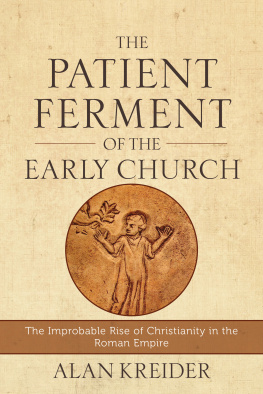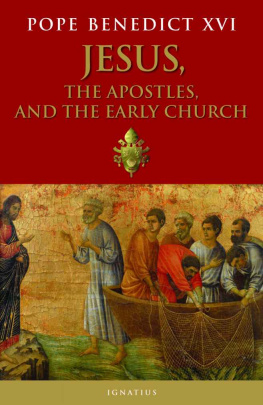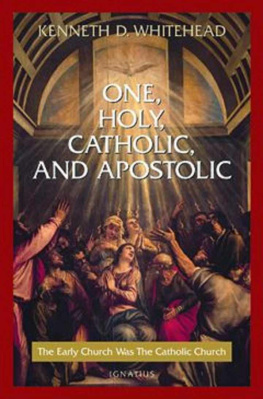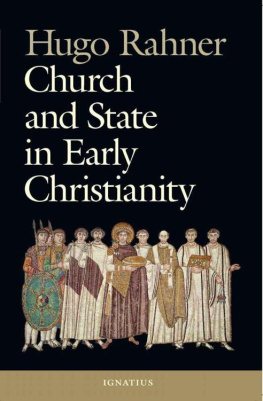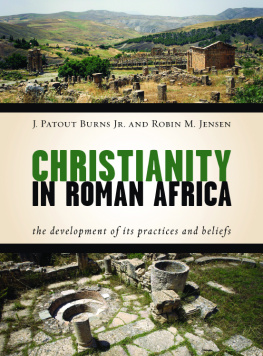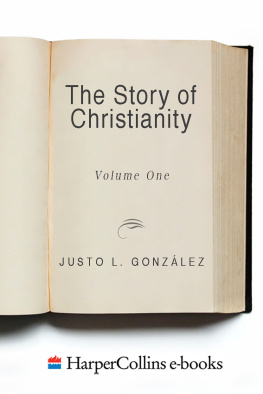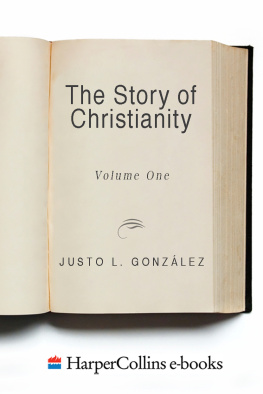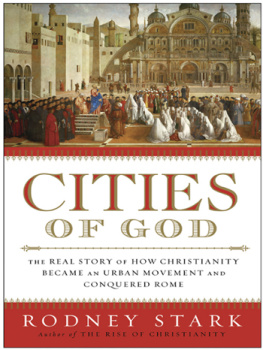1. The Improbable Growth of the Church
2. The Good of Patience
3. Push and Pull
4. Christians as Agents of Growth
5. Communities as Cultures of Patience
6. Catechesis and Baptism
7. Worship
8. Wise Doves in the Didascalia apostolorum
9. The Impatience of Constantine
10. Augustine and the Just Impatience
Acknowledgments
To write a book like this is to be indebted to many people. I owe much to Michael Green, whose Evangelism in the Early Church first seized my imagination, and much more to Ramsay MacMullen, whose formidable erudition and penetrating gaze have challenged me since I first read Christianizing the Roman Empire . On many occasions he has been kind to me, and I have at times thought of my research as an inner conversation with him. Other scholars whose learning and generosity have meant a great deal to me are Paul Bradshaw and Everett Ferguson. Four scholarsthree Germans and an Americanhave written works that at important stages shaped my thinking: Georg Kretschmar, Norbert Brox, Wolfgang Reinbold, and Rodney Stark. To all of these I am indebted. As I was writing, two friendsChristopher Rowland and Eoin de Bhaldraithe, O.Cist.faithfully read my chapters and broadened my horizons. Others who read chapters include Andy Alexis-Baker, David Boshart, Shana Peachey Boshart, Andy Brubaker-Kaethler, Matt Cordella, Leslie Fairfield, Everett Ferguson, Brian Haymes, Jay Freel Landry, Stuart Murray Williams, Gerald Schlabach, and Wilbert Shenk. In my attempt to think clearly about Augustines approach to patience, Gerald Schlabach was particularly helpful, providing perceptive insights and concrete suggestions. In the later stages of my writing, a Patient Ferment Group met monthly at the welcoming table of James and Barb Nelson Gingerich to eat delicious meals and scrutinize my chapters. I am grateful to James and Barb and to the faithful table companions whose encouragement and criticisms helped me greatly: Ryan Harker, Rachel Miller Jacobs, Loren Johns, Eleanor Kreider, David B. Miller, and Mary Schertz. Barb also gave initial editorial scrutiny to each chapter as it emerged, and Ryan helped me with classical Greek. Kim and Sally Tan are friends whose lives have inspired me and who for years have believed in my project and supported it; at long last I am able to dedicate this book to them, with deep gratitude.
Of course, I could not have written this book without the support of institutions: Mennonite Board of Missions (now Mennonite Mission Network) supported me as I studied early Christianity; Anabaptist Mennonite Biblical Seminary provided me with a Faculty Scholarship Development Grant and with an excellent library (whose assistant director, Karl Stutzman, has done wonders in tracking down obscure publications); and the hospitable sisters at St. Benedicts Monastery, St. Joseph, Minnesota, have five times given me an ideal setting for research as a scholar in their Studium program.
Most of all I owe gratitude to my wife, Eleanor, one of whose manifold gifts is her knowledge of early Christianity. As I worked on this book, I found joy in talking with her at length, knowing that the enthusiasms that we discussed are shared. Eleanor read and critiqued many drafts of these chapters and was patient even when there were no discernible signs of ferment! How can I adequately express thanks to her, and to all these dear people? Perhaps in part by absolving them of responsibility for the perversities that remain!
Abbreviations
Ancient Sources
| Ad Quir. | Cyprian, Ad Quirinum testimonia adversus Judaeos [ To Quirinus: Testimonies against the Jews ] |
| Adv. Jud. | Tertullian, Adversus Judaeos [ Against the Jews ] |
| An. | Tertullian, De anima [ On the Soul ] |
| Apol. | Apology |
| Autol. | Theophilus, Ad Autolycum [ To Autolycus ] |
| Bapt. | Tertullian, On Baptism |
| Cels. | Origen, Against Celsus |
| 12 Clem. | 12 Clement, Epistles |
| Cod. theod. | Codex theodosianus |
| Comm. | Commentary |
| Comm. Dan. | Hippolytus, Commentarium in Danielum [ Commentary on Daniel ] |
| Comm. Rom. | Origen, Commentarii in Romanos [ Commentary on Romans ] |
| Conf. | Augustine of Hippo, Confessions |
| Const . | Apostolic Constitutions |
| Cor. | Tertullian, De corona militis [ The Crown ] |
| CPL | Clavis Patrum Latinorum . Edited by Eligius Dekkers. 2nd ed. Steenbrugge: Abbatia Sancti Petri, 1961 |
| Cult. fem. | Tertullian, De cultu feminarum [ On the Dress of Women ] |
| Demetr. | Cyprian, To Demetrianus |
| Dial. | Justin, Dialogue with Trypho |
| Did. | Didache |
| Did. apost. | Didascalia apostolorum |
| Diogn. | Epistle to Diognetus |
| Dom. or. | Cyprian, De dominica oratione [ On the Lords Prayer ] |
| Don. | Cyprian, To Donatus |
| Ep. | Epistle |
| Epit. | Lactantius, Epitome of the Divine Institutes |
| Exh. cast. | Tertullian, De exhortatione castitatis [ Exhortation to Chastity ] |
| Fug. | Tertullian, De fuga in persecutione [ On Flight in Time of Persecution ] |
| Hab. virg. | Cyprian, De habitu virginum [ The Dress of Virgins ] |
| Haer. | Irenaeus, Adversus haereses [ Against Heresies ]; Hippolytus, Refutatio omnium haeresium [ Refutation of All Heresies ] |
| Herm. Mand. | Shepherd of Hermas, Mandate |
| Herm. Sim. | Shepherd of Hermas, Similitude |
| Herm. Vis. | Shepherd of Hermas, Vision |
| Hist. eccl. | Eusebius, Ecclesiastical History ; Socrates, Ecclesiastical History |
| Hom. Exod. | Origen, Homiliae in Exodum [ Homilies on Exodus ] |
| Hom. Ezech. | Origen, Homiliae in Ezechielem [ Homilies on Ezekiel ] |

